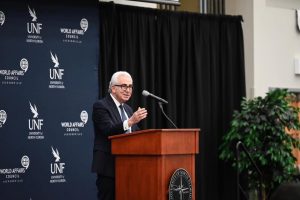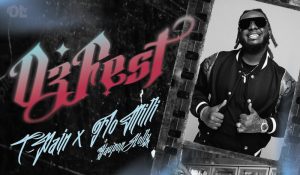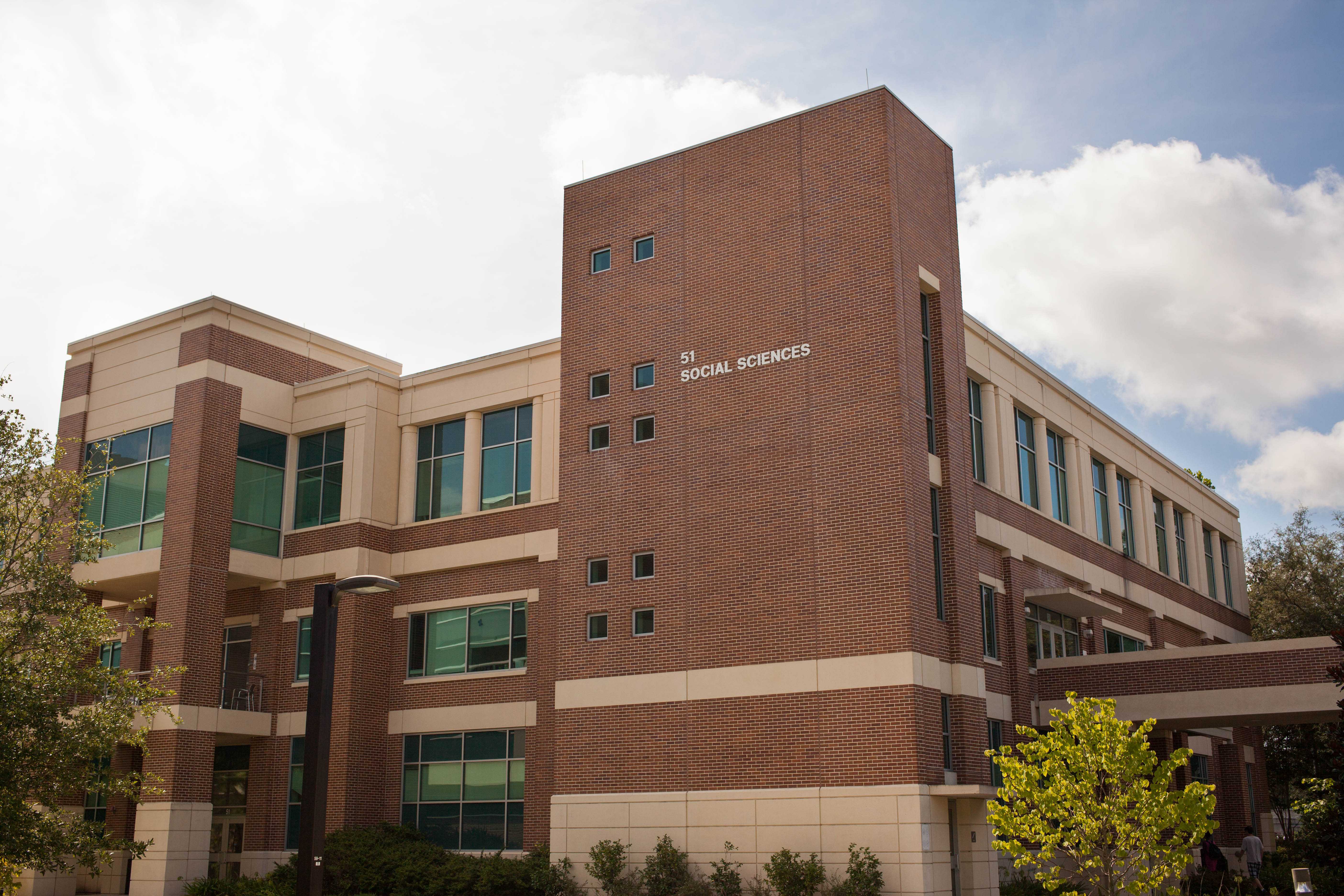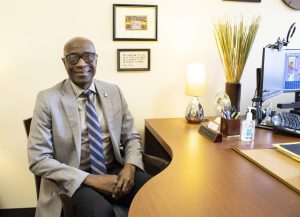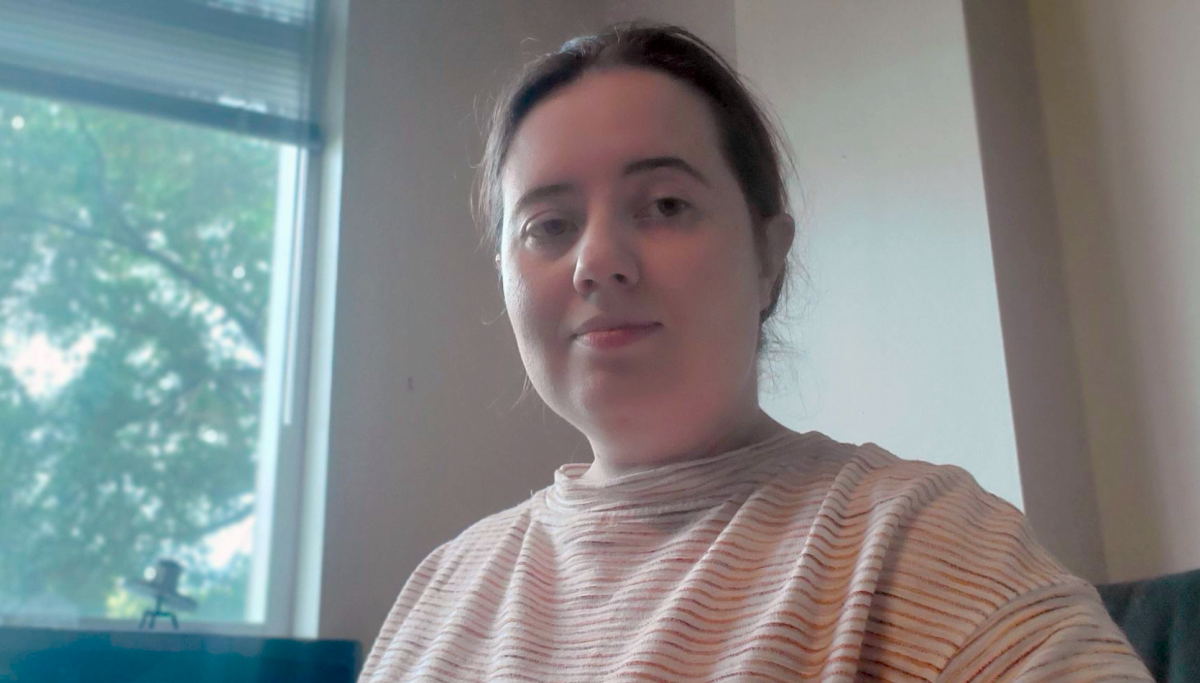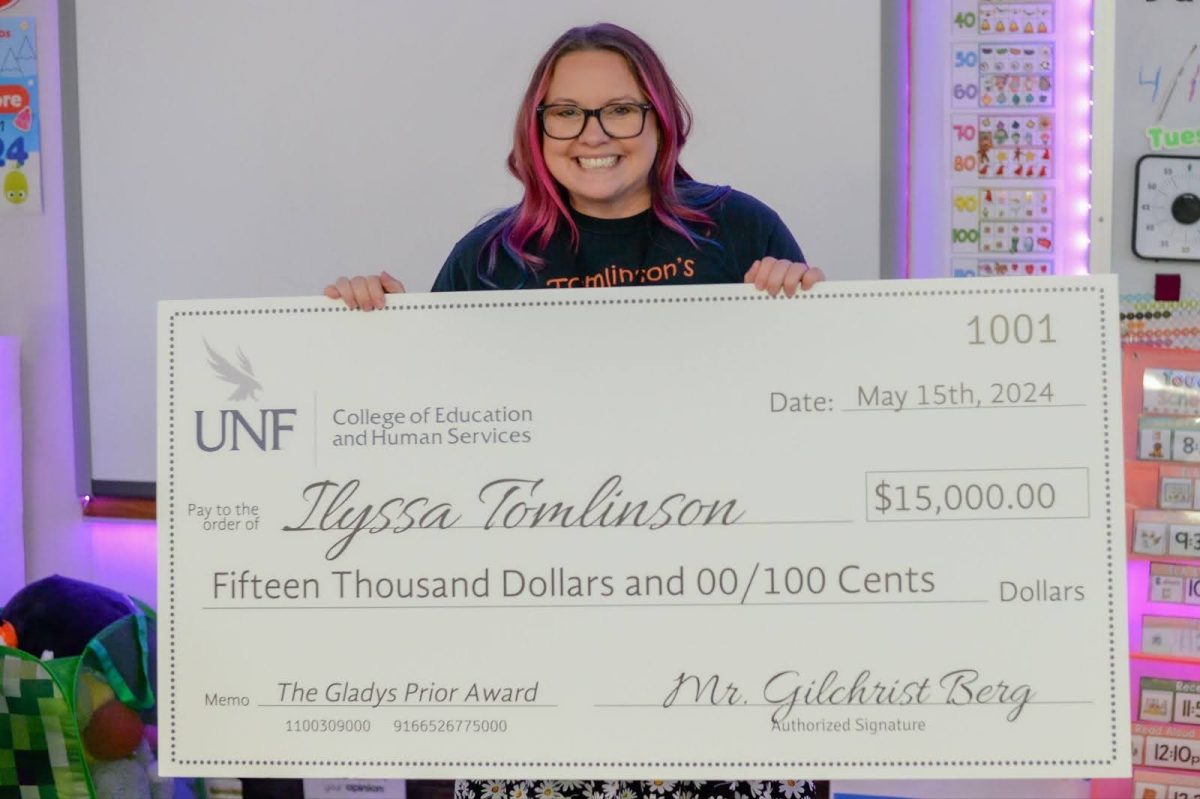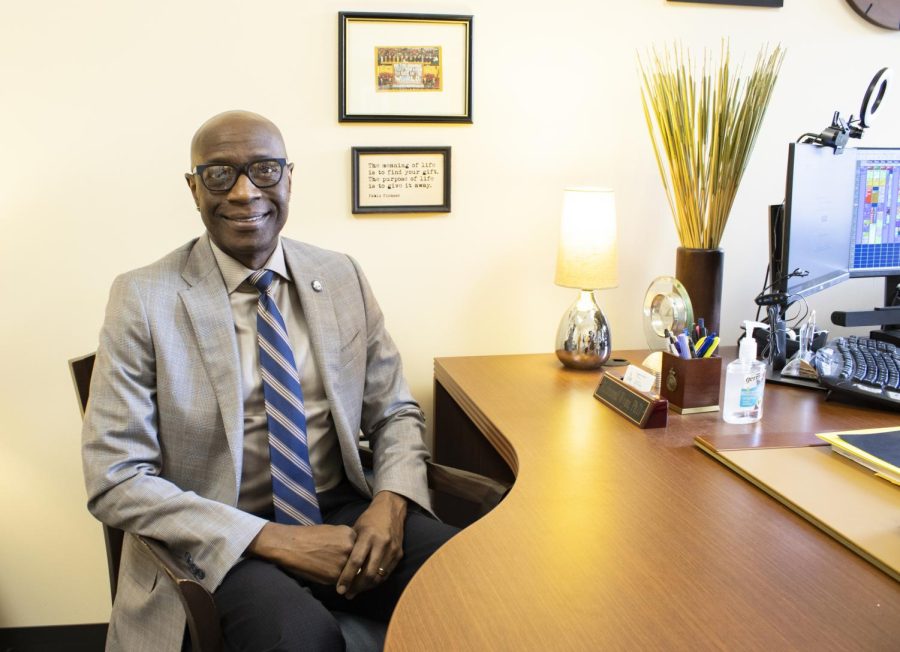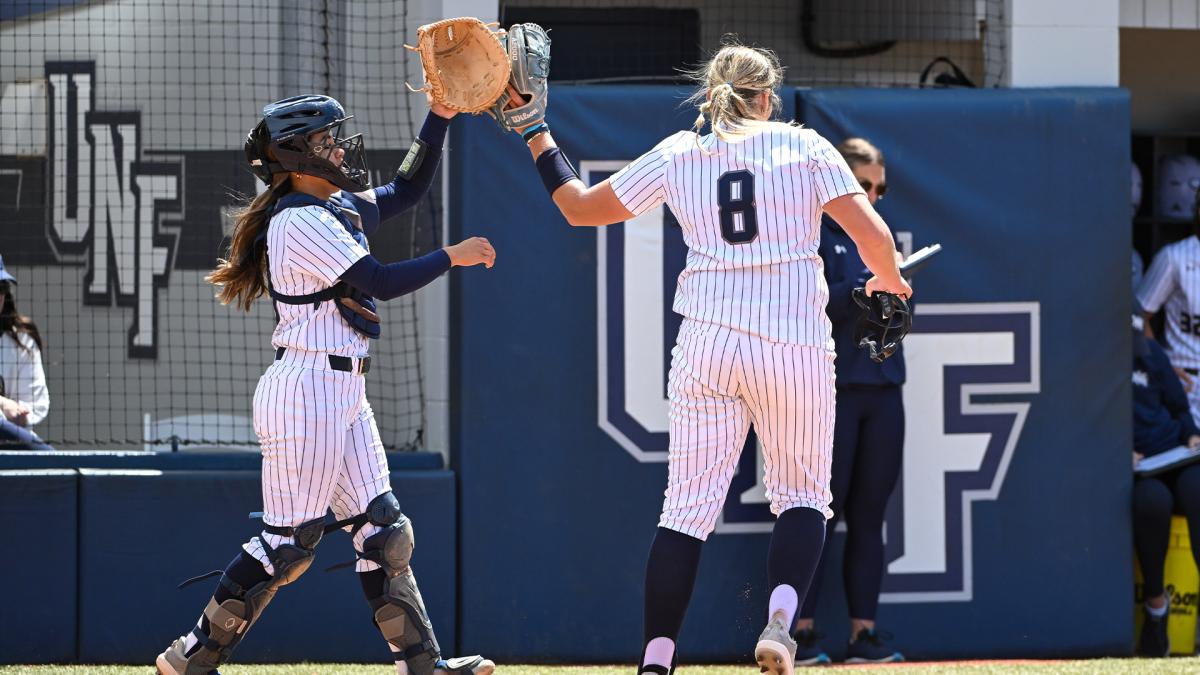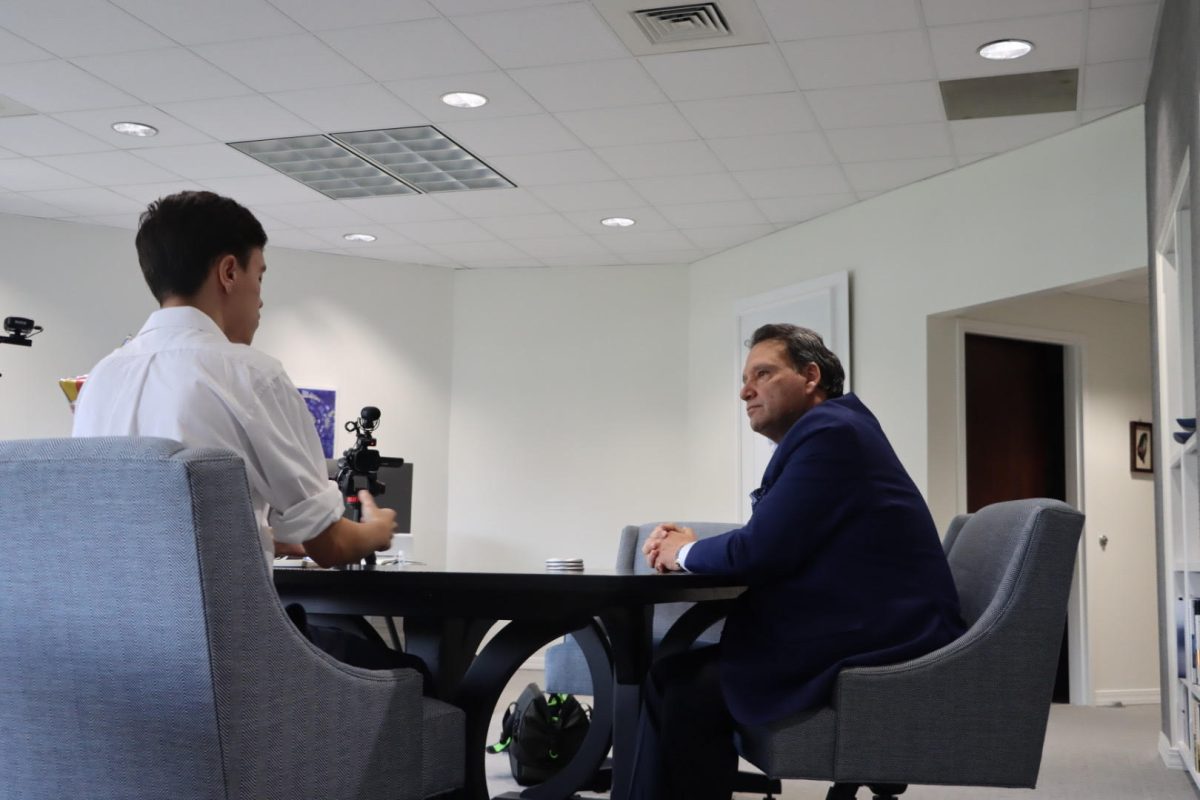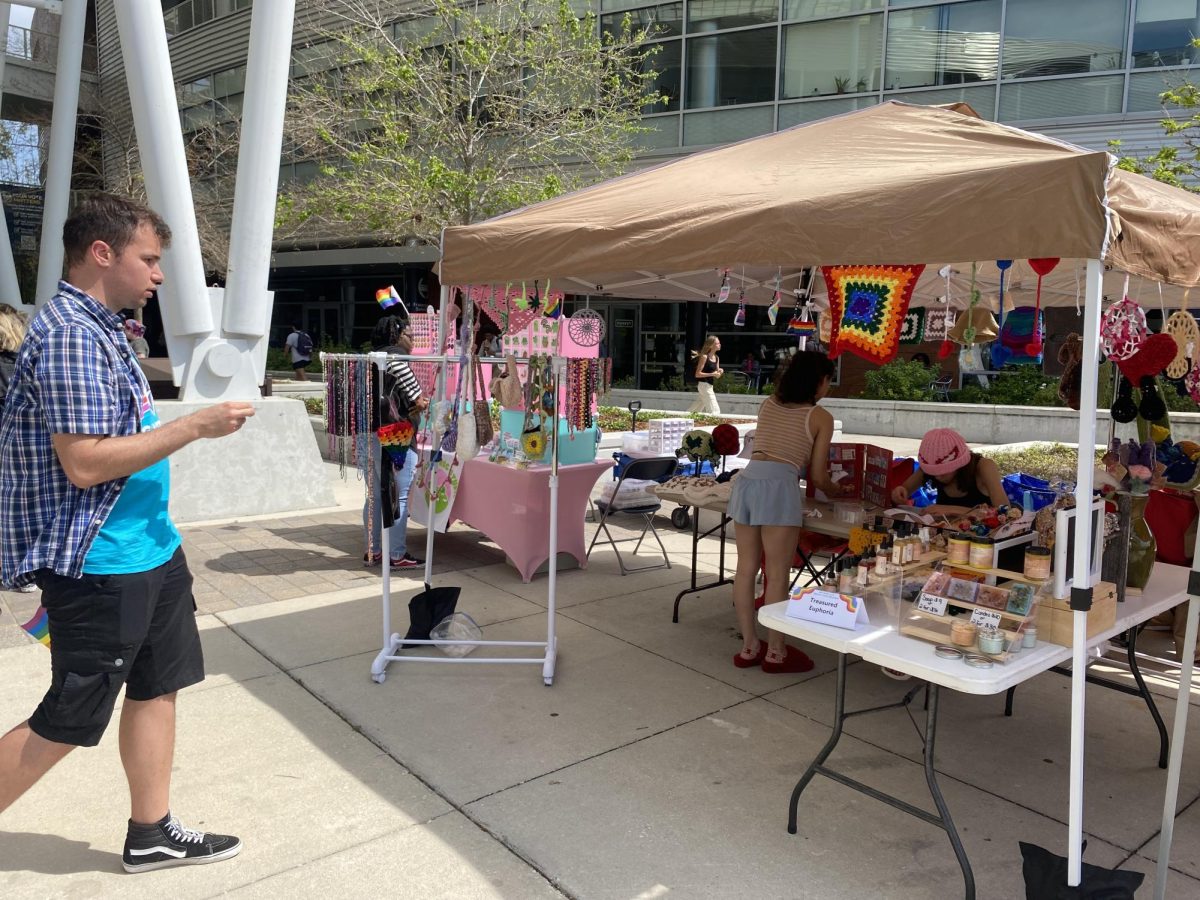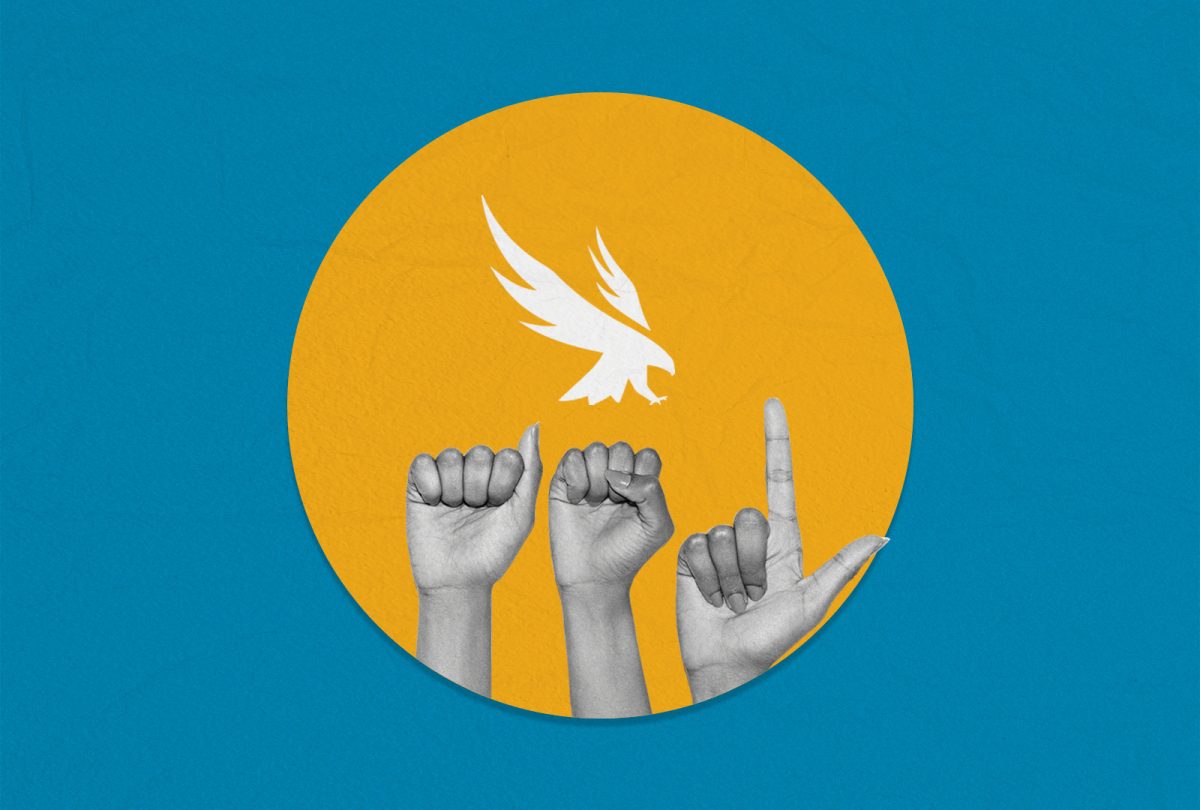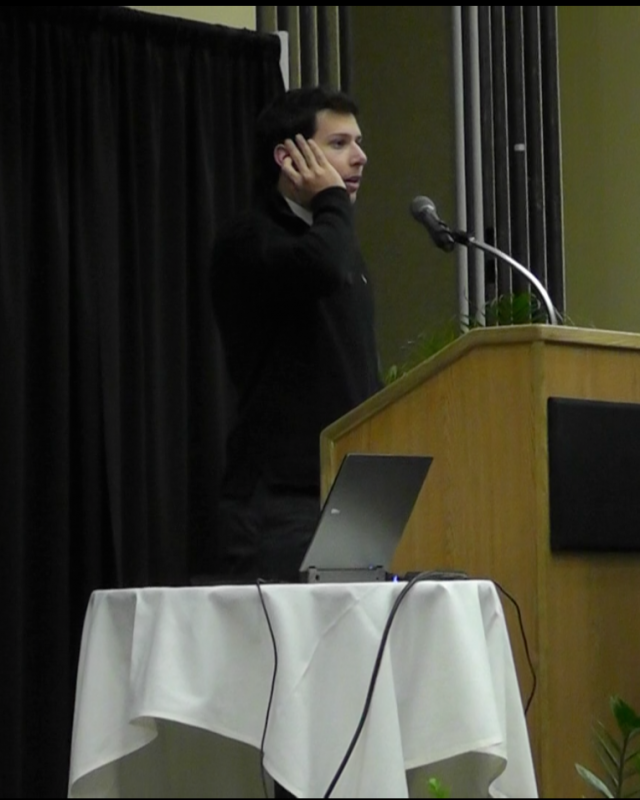
Photo courtesy of video by Taylor Nelson
Deeply rooted in the heart of the South American and African American culture are the building blocks of the Blues. But where did these rhythms and techniques really originate?
What most people don’t know is the Muslim Call to Prayer and the rhythmic recitation of the Qur’an play a large role in the origin of the Blues. In a lecture called “Blues and the Muslim Call to Prayer,” presented March 2 at UNF’s University Center, Dr. Sylviane Diouf explained the link between Islam and the slave music that later evolved into Blues.
Muslim culture had been implemented in African culture for around 400 years before the slave trade began, Diouf said. Arab traders made their way through parts of West Africa and converted people. When people began to be deported from Africa to the Americas as slaves, many from Senegambia and the surrounding areas were practicing Muslims.
Musical recitation of the Qur’an included techniques such as lengthening the notes and the use of long pauses, which are also present in the Call to Prayer. Diouf said these techniques were adopted and adapted by West Africans into something that was similar, yet totally their own.
Muslims brought over from Africa used stringed instruments such as lutes, koras, and an early version of the banjo.
“The characteristics of the heavy drumming music have been wrongly represented as representing Africa as a whole, when it only represents certain cultures,” Diouf said.
In 1739, there was a major slave revolt in South Carolina. Slaves rounded up their troops by playing drums. Because so many white people were killed in the revolt, laws were passed banning the use of drums. Those whose music relied solely on the drums weren’t able to play their music anymore, but the Muslim Africans who used string instruments could continue playing their music.
“Muslims [as slaves] maintained their religion as strongly as they could,” Diouf said.
During the domestic slave trade, slaves were moved from the upper south to the deep south, and their musical styles moved with them. Muslim slaves later adapted their music into something called a Holler; a single person, long loud musical shout, rising and falling. Examples of this style sound remarkably close to early examples of the Blues.
“This is one of the most enduring contributions of Islam and West African culture to the Americas,” Diouf said. “And also the most overlooked.”
As an example of modern day religious recitation, freshman pre-med major Omar Zeinlabdin gave a Call to Prayer. The Call to Prayer is done in mosques around the world five times a day for the five daily prayers.
Zeinlabdin started giving the Call to Prayer in mosques and around Jacksonville for various events when he was a sophomore in high school.
“Ever since I was a kid, 5 or 6 years old, I would go to the mosque and go home and repeat it. I was really good at imitating and doing the call to prayer,” he said.
The lecture was part of UNF’s sixth annual Interfaith Week, which seeks to raise awareness of the diversity of ideological and religious frameworks in America and to provide opportunities for UNF students to engage in respectful dialogue with students from different backgrounds. It was also the kickoff for the exhibit “Poetic Voices of the Muslim World,” an exhibit and series of programs hosted by the Jacksonville Public Library March 2 through June 15.
Email Taylor Nelson at [email protected]
Check it out:
The Jacksonville Public Library, in partnership with UNF and the Istanbul Cultural Center of Jacksonville is hosting “Poetic Voices of the Muslim World” through June 15. For more information on the exhibit and surrounding events, visit http://jaxpubliclibrary.org/poeticvoices



